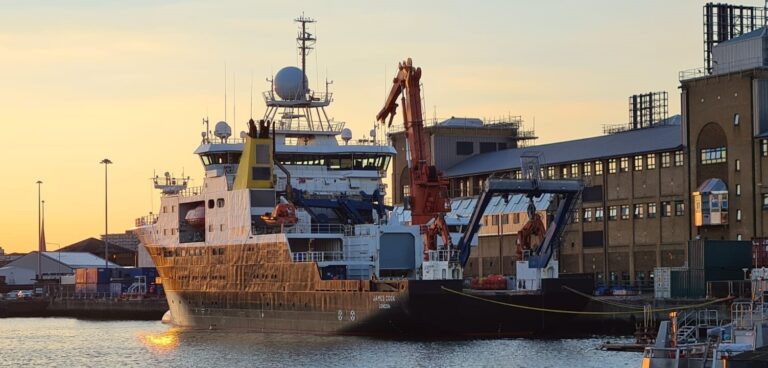Scientists from the National Oceanography Centre (NOC) and the Scottish Association for Marine Science (SAMS) will embark on an expedition to the North Atlantic Subpolar Gyre to measure ocean changes and how they affect the UK’s weather systems.
The new knowledge gained will have direct impacts on strategies for the mitigation and adaptation to climate change within the UK.
The UK Overturning in the Subpolar North Atlantic (UK-OSNAP) expedition will take place onboard the RRS James Cook and aims to better understand ocean circulation through continuous observations of the North Atlantic Subpolar Gyre. The data will answer questions relating to the global carbon cycle – the process by which carbon is exchanged between its four main reservoirs; the atmosphere, the biosphere, oceans and sediments. It will also look at the impact these changes will have on the marine ecosystem.
The team will make observations of ocean variables such as temperature, salinity, carbon and oxygen, and deploy a new recorder to measure water pressure at the seafloor. The pressure recorder will remain in the water for 10 years and the data it gathers will be harvested remotely without a need to recover the device.
Professor Penny Holliday, head of marine physics and ocean climate, NOC, said, “This ground-breaking research will provide vital evidence to policymakers deciding on the UK government’s future strategy for combatting climate change. NOC is playing a leading role in gaining an understanding into previously unknown areas of ocean research and its impact on populations worldwide, and this expedition will take this research toward net-zero oceanographic capability using new technologies.”
Dr Ben Moat, chief scientist for the expedition and physical oceanographer, NOC, added, “It’s really exciting to see this brand-new technology being deployed to assist with our research. The UK-OSNAP expedition will help us better understand ocean circulations and fluxes by constant observations of the North Atlantic Subpolar Gyre. Using new technology such as the latest UK Argo floats and a new drift-free pressure recorder will allow easier data collection and will help to better inform climate change solutions.”



